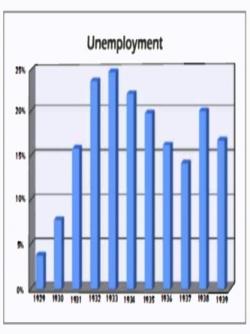The Final Crusade?
Diplomats and most citizens of European and Islamic nations desire peace, but Bible prophecies—coming alive today—foretell a major confrontation between Europe and the Islamic world in the years just ahead.
Centuries of war and bloodshed have marked the encounters between the professing Christian nations of Europe and the Muslim nations of the Middle East and North Africa. Though in recent decades international leaders have made great efforts to broker better relations between nations that share the "blood of Abraham," frictions still exist—and can explode at any time.
Diplomats and most citizens of European and Islamic nations desire peace, but Bible prophecies—coming alive today—foretell a major confrontation between Europe and the Islamic world in the years just ahead.
Common Roots of Strife
Many Arabs understand they are the descendants of the biblical patriarch Abraham through his son Ishmael or his grandson Esau (see Genesis 21; 36). While most people understand that the Jews are descended from Abraham, only a few today realize that many people of northwestern European descent are also descended from Abraham, through his son Isaac and the twelve sons of Jacob. Many Europeans, and many of the peoples of Syria and Iraq and Iran (ancient Persia) are descended from Noah's son Shem (see Genesis 10), while many Muslim peoples of North Africa are descended from Noah's son Ham.
The Bible reveals that the historical roots of strife between the descendants of Abraham began long ago. There was strife between Isaac and Ishmael (Genesis 21:8–14), but the descendants of Isaac and Ishmael were both prophesied to become great nations (Genesis 16:10–12; 17:20; Genesis 26:1–5). The strife between Jacob and Esau actually began in their mother's womb (Genesis 25:22–34; 27:42–43), but the descendants of Esau—such as the Edomites and Amalekites (see Genesis 36)—also became numerous. History documents how this strife has continued.
Conquests and Re-Conquests
After Jesus Christ's death and resurrection, Christianity spread quickly throughout the Roman Empire with major centers developing in Jerusalem, Antioch (Syria), Alexandria (Egypt), Constantinople (Turkey), Babylon (Persia) and Rome. However, its growth was eclipsed in the seventh and eighth centuries ad by a new phenomenon. The armies of Islam swarmed out of Arabia into Persia and across North Africa and into Spain, conquering lands and spreading the religion of Islam at the point of a sword. Muslim Caliphs ruled from Baghdad for about 500 years, establishing an empire greater than that ruled by the Roman Caesars and more advanced than anything in Europe.
Toward the end of the eleventh century ad, Pope Urban II called upon Roman Catholics to join in a "crusade" against the Turks. This was the first of several Crusades through which Roman pontiffs sought to wrest the area around Jerusalem from Muslim control. Crusaders entered Jerusalem in 1099ad, but their gains were short-lived, and Islamic forces re-conquered Jerusalem. Despite ongoing battles, Muslims held on to territories in the Middle East and Asia Minor for centuries. Beginning in the 1300s, the Ottoman Turks built a Muslim empire that ruled Egypt, Arabia, Syria, Mesopotamia, Turkey and the Balkan countries—before their expansion into Europe was stopped twice at the gates of Vienna by European armies loyal to the Pope.
The dawn of the Renaissance brought voyages of discovery by European navigators, and with the rise of the Industrial Revolution, Europe and its "Christian" heritage gained predominance over the declining power of the Muslim world—a trend that has continued into the 21st century. Jerusalem, which had been held by the Egyptian Mamluks from the mid-1200s, then by the Ottoman Turks starting in 1517, fell to British general Edmund Allenby in 1917, ending centuries of unchallenged Muslim control of this land so dear to Jews, Christians and Muslims alike.
The Last Crusade
In the last 50 years, the Middle East has periodically erupted into war between Muslim nations and the Jews. The American-led invasions of Kuwait and Iraq have been viewed as "Crusader aggression" by the Islamic world. More recently, some Muslim leaders have declared jihad (a holy war) against "Crusaders" (Western nations) and launched terrorist attacks in the United States, Britain and Spain, and against Western installations in other countries. France was shaken by days of riots involving angry Muslims.
Across Europe, Muslim families are having children at far higher rates than non-Muslim Europeans, leading to concerns that in just a few years, Europe will have become Islamicized (see "When Cultures Clash" in the September-October 2008 Tomorrow's World magazine). As the number of native-born Muslims in Europe increases, supplemented by immigration from Muslim nations to the south, nations that once thought of themselves as Christian are now faced with large populations determined not only to practice their religion but even to govern their communities with sharia laws from the Qur'an. In Britain, where the number of practicing Anglicans has declined precipitously in recent years, a few Muslim leaders have even boasted that their goal is to take over the country and make it a Muslim state.
With such growing tensions between Europe and Islam, many wonder where this will lead. Bible prophecy reveals the answer! Long ago, God revealed to the prophet Daniel what would happen in the "latter days" (Daniel 2:28). Daniel was told that at "the time of the end" a king of the South will attack the king of the North, "and the king of the North will come against him like a whirlwind… and he shall enter [many] countries, overwhelm them… He shall also enter the Glorious Land [Israel], and many countries shall be overthrown" (Daniel 11:40–41).
The countries that the king of the North will enter and overthrow are the Muslim nations of the Middle East and North Africa. The king of the North will gain possession of the resources of Egypt, Libya and Ethiopia (Sudan)—including their gold, silver, oil and natural gas. When we consider the recent discoveries of major deposits of gold and oil in Egypt, and consider how the natural gas reserves of Libya and the Sudan are of such growing importance to Europe, these ancient biblical prophecies take on a greater sense of immediacy.
The king of the North will face opposition from a king of the South. Psalm 83 indicates that the king of the South will consist of a confederacy of Muslim nations—including among them Edomites, Ishmaelites, Amalekites and Moabites—who will conspire to "cut off" Israel "from being a nation"—a goal some Muslim leaders have openly proclaimed in recent decades. Psalm 83 also states that the Assyrians (modern-day Germany) will be in league with this Muslim confederacy, at least initially. Daniel 11:27 reveals that these two kings will enter into an agreement with each other—but will lie to each other—before their confrontation at the end of this present age.
Who, then, is this king of the North? Scripture describes the final revival of an empire with links to ancient Rome that is composed of ten kings (leaders of nations or regions) who will surrender their sovereignty to a leader called the Beast, just before the return of Jesus Christ (see Daniel 2; 7; Revelation 17). The fourth kingdom mentioned in Daniel 2 is generally recognized as the Roman Empire. The Roman Empire and its revivals, including the Holy Roman Empire, existed in Europe—especially central Europe—and this is where the final revival of the Beast power will emerge. The king of the North will thus be an end-time power that will arise in Europe and be closely linked with a prominent religious figure (Revelation 13). This situation will resemble the Europe of the Middle Ages, when emperors of the Holy Roman Empire and popes of the Roman Catholic Church together presided over "Christendom"—the European nations that professed the Christian religion. This was the Europe that launched the Crusades to regain the Holy Lands from the Muslims. Bible prophecies indicate that a "final Crusade" will involve another confrontation between forces from "Christian" Europe in the north, and the Islamic world to the south. We need to watch world events as prophecies about the "final Crusade" come alive in the times just ahead!






